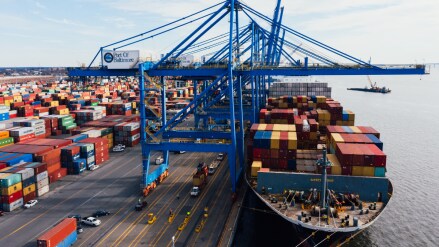Economic strategies and security strategies are inevitably linked to each other. Residents of the earliest large towns built walls to protect themselves from marauders, and used some of their economic surplus to finance those walls as well as military capabilities such as training defence forces and providing them with weapons.
The post-World War II security order allowed countries like Japan, South Korea, and Germany to grow economically under security umbrellas fashioned and led by the United States, reducing their need to spend on their own national security. India chose a different path, and its own distinct security strategy, which in some ways was more successful than its economic strategy. The world in which these choices took place began to change with the collapse of the Soviet Union and the rise of China, and those changes are now accelerating dramatically.
India began to shift its economic strategy in the late 1980s, with gradual acceleration of those shifts over time, including the moderately “big-bang” reforms of 1991. More recently, its security strategy has also shifted, including its membership in the Quad, along with the US, Japan, and Australia. The reason and the focus for such shifts is, of course, China, which has quickly followed its economic success with political assertion. Countries in China’s geographic neighbourhood (and the US, which is omnipresent since the last World War) see China’s moves as a threat. Taiwan has good reason to be worried, but in other cases China’s leaders may well justify their actions as protecting their own national security.
National security does not just mean defence capabilities narrowly conceived. Cybersecurity is conceptually close to traditional defence, as is access to resources for any form of defence. But food security stands out. In a world without threats or risks of trade disruption, a country does not need to be self-sufficient in food. But in the world as it is, food security has extra importance. Energy is another example of an economic good that is fundamental for the functioning of an economy in any circumstances, but represents a dimension of security that has extra importance in a risky world.
India is facing immediate challenges on two fronts. One is the chaos of current US trade policy. The other is its dispute with Pakistan. The dispute with Pakistan has obviously affected India’s economic strategy, since trade with Pakistan, or trade that goes through Pakistan, is severely restricted by national security concerns. But arguably, there have been aspects of India’s security strategy that have been counterproductive, while also being suboptimal as economic strategy.
The dispute with Pakistan is over Kashmir, which goes back to Partition and has no easy solution. But India’s strategy for national food security has damaged Punjab, a neighbouring border state, so badly that both the national economy and national security have been negatively affected. By the 1970s, the Green Revolution economy was already showing signs of being unsustainable. This unsustainability was a contributor, though not the only reason, for increased political conflict in the state. But instead of dealing with underlying economic causes, the national government treated the political symptoms, and did so with brute force.
In the 1980s, Punjab had crafted a crop diversification strategy to move away from the wheat-rice cycle which it had been locked into by an outdated national food policy. Instead of helping to implement diversification, the national government was spending resources to crush a violent conflict largely of its own making. Even after the conflict was over, there was no attention to the need for a new economic strategy for Punjab. Instead, governance in the state, which had not recovered from the era of conflict and central rule, deteriorated under the political economy constraints imposed by national food policy.
Arguably, a myopic and highly suboptimal economic strategy in the design and implementation of national food policy made matters worse for national security. A deteriorating Punjab economy has been fertile ground for destabilisation efforts by forces within Pakistan’s government. These forces seek to use Punjab’s social disequilibrium, where concerns about religious identity have combined with relative economic decline, to make it harder for India to maintain its hold on Kashmir.
Therefore, aside from problems with the Indian government’s approach to Kashmir, its economic strategy for food security has damaged Punjab, and reduced overall national security. This strategy has not even been optimal for the rest of the country, since the need for diversification away from wheat and rice — to grow crops which would meet the changing nutritional requirements of India’s people — has been obvious for some time.
The US promoted the economic rise of countries like Japan and South Korea to support its global security goals. Sometimes this created domestic problems, as when Japanese car imports ate into Detroit’s dominance of the US market. In these cases, the security gains to the US were invisible and diffuse, whereas the losers were visible and concentrated, creating challenges for domestic politics. India’s economic strategy with respect to Punjab (and perhaps in other ways for other border states with minority populations) has reduced national security, as well as being directly suboptimal. Whether it had to be this way because of domestic political compulsions is unclear.
The writer is professor of economics, University of California, Santa Cruz.
